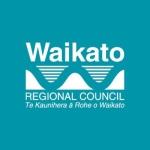Council active in helping manage gas issues in Waikato
Waikato Regional Council says it is heartened by news of a limited resumption of gas supplies to dairy factories in the region, meaning there is less risk of surplus milk polluting waterways.
The council has been working closely with central Government, local government partners, the dairy sector and industry generally to manage the economic and social impacts of the gas outage in Taranaki.
Today it has been announced that limited gas supplies will be resumed to the dairy sector in Waikato and Bay of Plenty, and Fonterra hopes a significant percentage of farmers will have their milk collected tonight in Waikato as a result, with further gains expected tomorrow.
“That means there’ll be far less pressure on farmers to dispose of milk through their effluent systems and by other means, thereby reducing the risk that milk may find its way to waterways where it is highly toxic to aquatic life,” said compliance and education manager Rob Dragten. (Milk is highly toxic in waterways because it rapidly depletes the oxygen in the water, killing aquatic life. The oxygen depleting properties of milk are up to 3000 times more potent than treated domestic wastewater.)
“However, at this stage it still looks like a significant number of farmers won’t get a pick up tonight, so some will clearly be needing to dispose of surplus milk.
“We will continue to work closely with Fonterra, other dairy companies and farmers to manage this situation until 100 per cent milk collection is back in place and all factories are running normally.”
Farmers who don’t get milk collected are advised to follow their dairy company’s advice and procedures for dealing with surpluses. Options include feeding milk to livestock, applying diluted milk to pastures (especially maize crops) and adding milk to effluent storage ponds. More detailed advice is available from http://www.dairynz.co.nz/page/pageid/2145873802/Milk_Disposal.
Mr Dragten said the council would also work with industrial resource consent holders to help them manage their way through the supply crisis. “For example, we’ve already agreed to let Civil Whey Distributors Ltd spread more dairy factory waste, including milk, on to land than they normally would.
“Other industries and consent users have also informed us of issues they are facing and the impacts it may have on their resource consent requirements, along with contingencies they are implementing to minimize any adverse effects.”
Mr Dragten said it is important for anybody who may have difficulty with resource management compliance to let the council know as it may be able to give assistance, and can let any complainants know it is aware of the issues at a given site.
He said there may be occasions when industrial sites and farms will cause more odour issues. “The public should expect that there will be some smells from some places and we ask them to be tolerant of this during this unprecedented event. We will continue to monitor the situation closely and help out where we can.”
Meanwhile, the council’s transport team is working closely with Hamilton bus services operator Go Bus to manage services after disruption to supplies of CNG, which fuels 24 of the company’s fleet in the city.
Transport operations manager Edwin Swaris said at this stage there should be enough fuel and alternative diesel buses to allow all Hamilton services to run through to the weekend.
“However, passengers may find that their bus is not the usual one and it may not have the same ease of access as usual. We do apologise for any inconvenience and will work closely with Go Bus to manage this situation and keep the public informed about what’s happening.”
